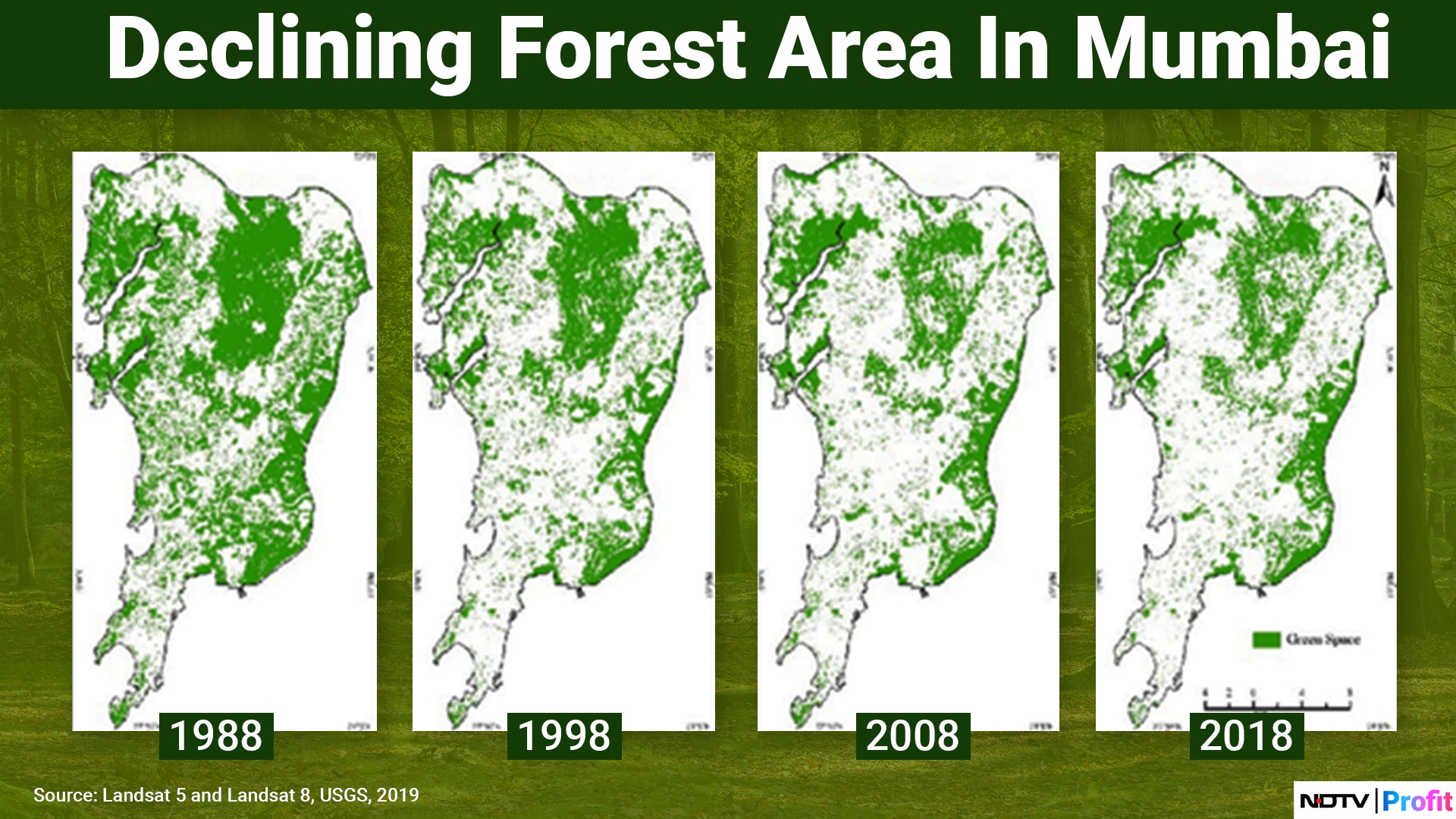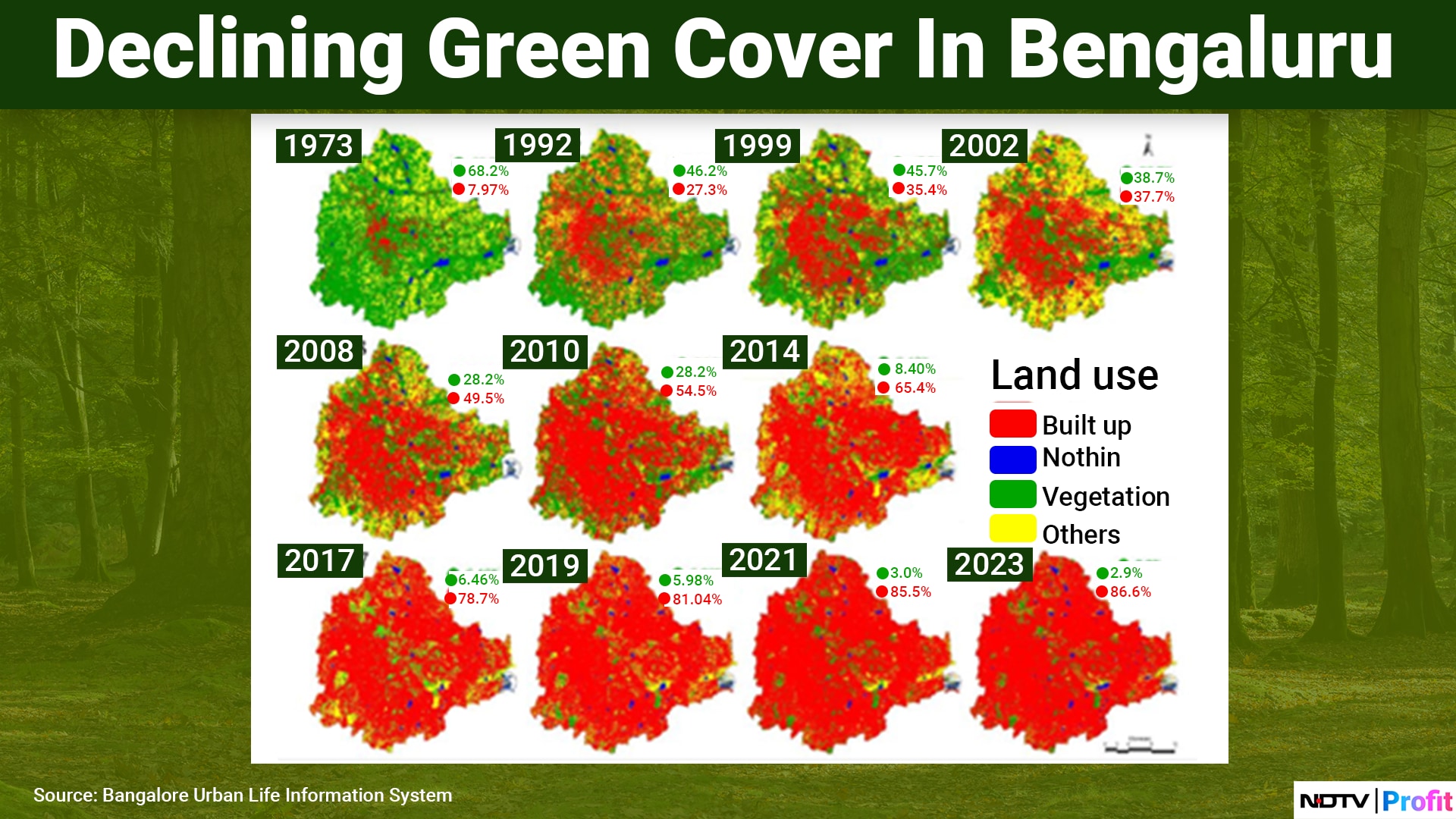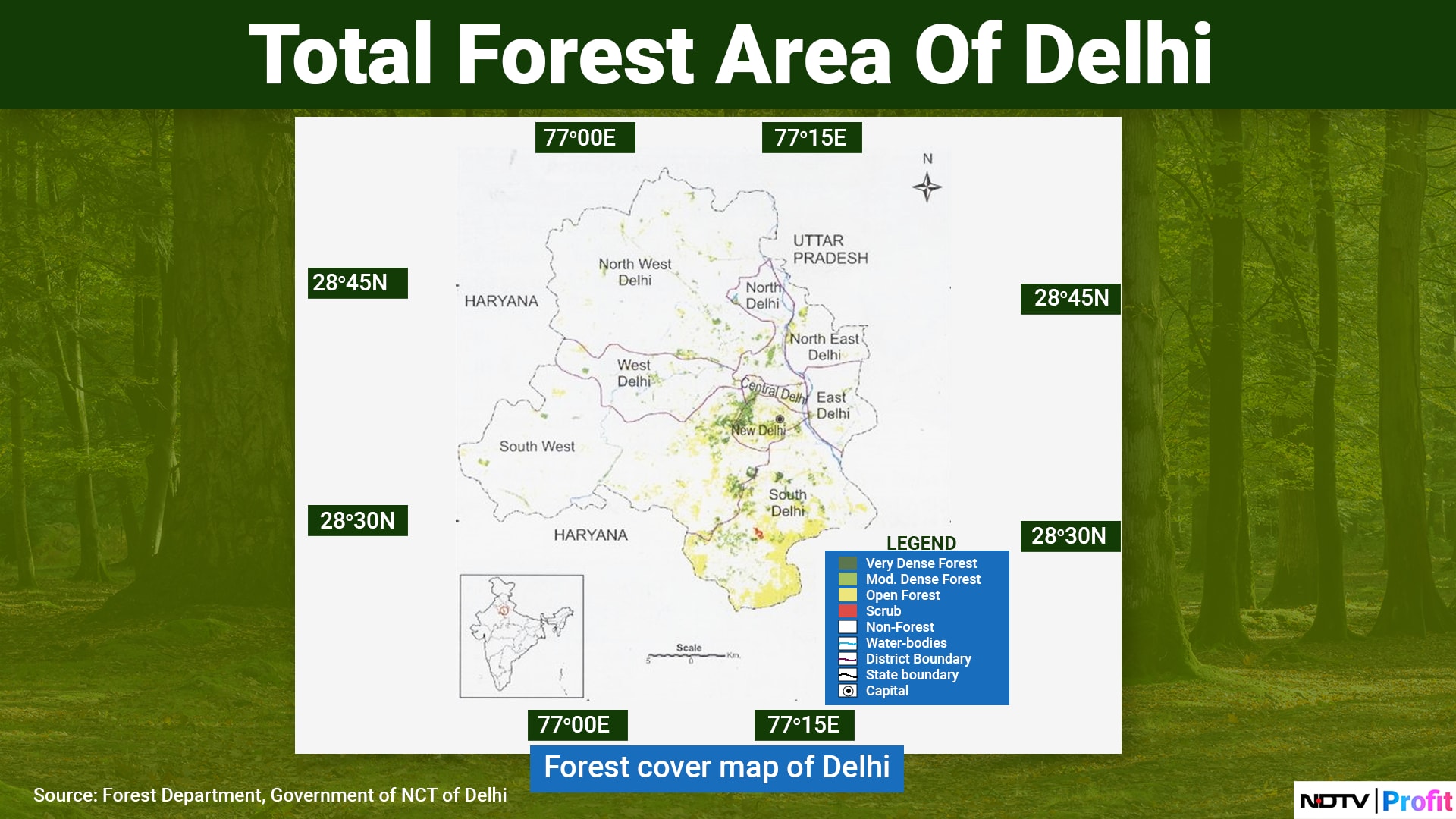
Metro cities in India are facing waterlogging issues, with several areas of Mumbai, Bengaluru and Delhi inundated amid heavy rain recently.
It was not a long time ago when Bengaluru was going through a major water crisis and grappling with water scarcity. The city received its first set of showers in early May. Despite light showers, a few areas reported heavy waterlogging.
A report by Moongabay highlights outdated methodologies, poor drainage channels and mismanagement by the authorities as a few challenges.

Alongside this, tree cover and vegetation in Mumbai has gone down in the last 30 years. A report published by Springer Nature journal in July 2020 shows that the forest area in Mumbai has declined by 42.5% in the last 30 years. In fact, Maharashtra is the fourth state in the country which has converted its forest land for non-forest uses.
Deforestation leads to soil cohesion, reducing the groundwater level intake and simultaneously reducing the water intake by trees. Eroded soil is prone to landslides and floods as the absorption level goes down and the water remains at the surface layer of the soil. Trees also reduce flooding by slowing down the water flow.
Large-scale urban migration is leading to rampant construction for housing and commercial purposes. This has further pulled down the natural resources, such as forests, parks, and lakes.
In Bengaluru, tree cover has reduced by 6% in the last 10 years. Currently, less than 3% tree cover is left in the Silicon city of India. The lake catchment area has also gone down, and more land was encroached to build layouts.

The city that was once called the garden city or city of lakes has less than 20 'good lakes' maintained by Bruhat Bengaluru Mahanagara Palike. The average temperature in Bengaluru also went up by 1.5 degrees Celsius last summer.
Experts say that the mismanagement by stakeholders and imbalance in the ecosystem is resulting in excess to no water-like situation in many cities across the country.
"For sustainability, on an average, there should be seven trees for one person," TV Ramachandra, a professor at the Indian Institute of Science, said. "But in Bangalore, we have the reverse of this, for every seven people, there's only one tree left."
"It's all concrete, 88% of the city is built up. Of course, there's no way the water can drain out or seep in," he said.
Even Delhi is also not behind as it also grappled with water scarcity this summer. Reports suggest that overutilisation of resources and wastage of water has led to the situation.

The Indian Forest Survey Report, 2021, has recorded a decrease in 0.62 sq km of open forest in comparison to the ISFR, 2019, which cited a change of 0.44 sq km in the total forest area of Delhi.
Tragedies like Joshimath and constant landslides in the Himalayan region are all alarm bells indicating the imbalance in the ecosystem due to prioritisation of construction activities.
In 1988, the National Forest Policy of India set a goal of achieving 33% of the country's geographical area under tree and forest cover. More than three decades now and we still are nowhere near to it.
At present, India has only 24.62% tree and forest cover combined. Out of it, the tree cover accounts for only 2.9%.
Essential Business Intelligence, Continuous LIVE TV, Sharp Market Insights, Practical Personal Finance Advice and Latest Stories — On NDTV Profit.




















